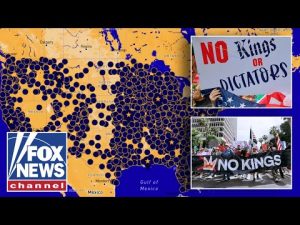Zohran Mamdani isn’t a fringe whisper anymore — he’s the Democratic standard-bearer for New York City, and that should scare every taxpayer who loves this city. He rode a wave of progressive enthusiasm to win the Democratic primary, and now his radical agenda is moving from policy papers into real political power.
At the center of the outrage is a campaign memo that openly says Mamdani would “shift the tax burden from overtaxed homeowners in the outer boroughs to more expensive homes in richer and whiter neighborhoods.” That is not accidental phrasing; it’s a raw admission that his plan would punish neighborhoods based on income and, disturbingly, racial demographics — a pitiless kind of identity politics that tears at the fabric of the city.
Mamdani’s plan doesn’t stop at property shaming. His platform calls for a flat 2 percent surcharge on every dollar earned by anyone making more than $1 million, plus big corporate tax hikes to fund universal childcare, free buses, and city-run grocery stores. This isn’t a modest tweak; it’s a blunt instrument aimed at the city’s wealth creators and employers in the name of redistribution.
Worse, those proposals would push New Yorkers into tax brackets they’ve never seen before — commentators calculate the combined federal, state, and city burden could reach roughly 52 percent for the highest earners if all these plans were enacted. Tell that to the small businesses, investment firms, and professionals who already pay through the nose to keep this city competitive; they’ll be the first to look for an escape hatch.
On public safety, Mamdani parades his “community-first” theory like a cure-all while questioning the whole purpose of prisons and pushing a heavy reliance on civilian mental-health teams instead of officers. That kind of rhetoric — once about reform, now edging into decarceration orthodoxy — has police, unions, and everyday New Yorkers worrying that violent offenders will get lost in theory while the streets pay the price.
When opponents press him, Mamdani has been boxed into awkward clarifications and evasions — even a debate where critics accused him of cozying up to decriminalization stances that many voters see as a recipe for lawlessness. New Yorkers don’t want lectures; they want public safety and clarity, not vague promises that dangerous behavior will be met with social-work brochures.
It’s no surprise that wealthy backers and business leaders are already mobilizing against him, dumping money into opposition efforts and warning that his agenda will hollow out the city’s tax base and job market. This is the predictable result when politicians promise utopia on the backs of those who actually keep the lights on and the subways running.
Hardworking New Yorkers should treat Mamdani’s rise as a wake-up call: these aren’t harmless academic ideas, they’re a blueprint for a city that punishes success, sidelines law enforcement, and hands more power to ideologues who think top-down redistribution fixes everything. If you love this city — its grit, its opportunity, and its tolerance — now is the time to stand up, speak out, and demand leaders who put safety, fiscal sanity, and equal treatment for all ahead of political experiments.







